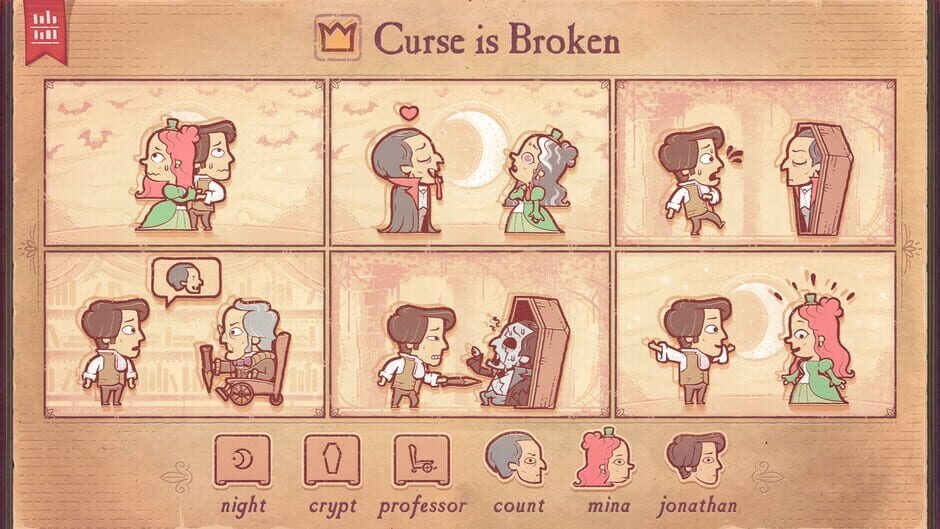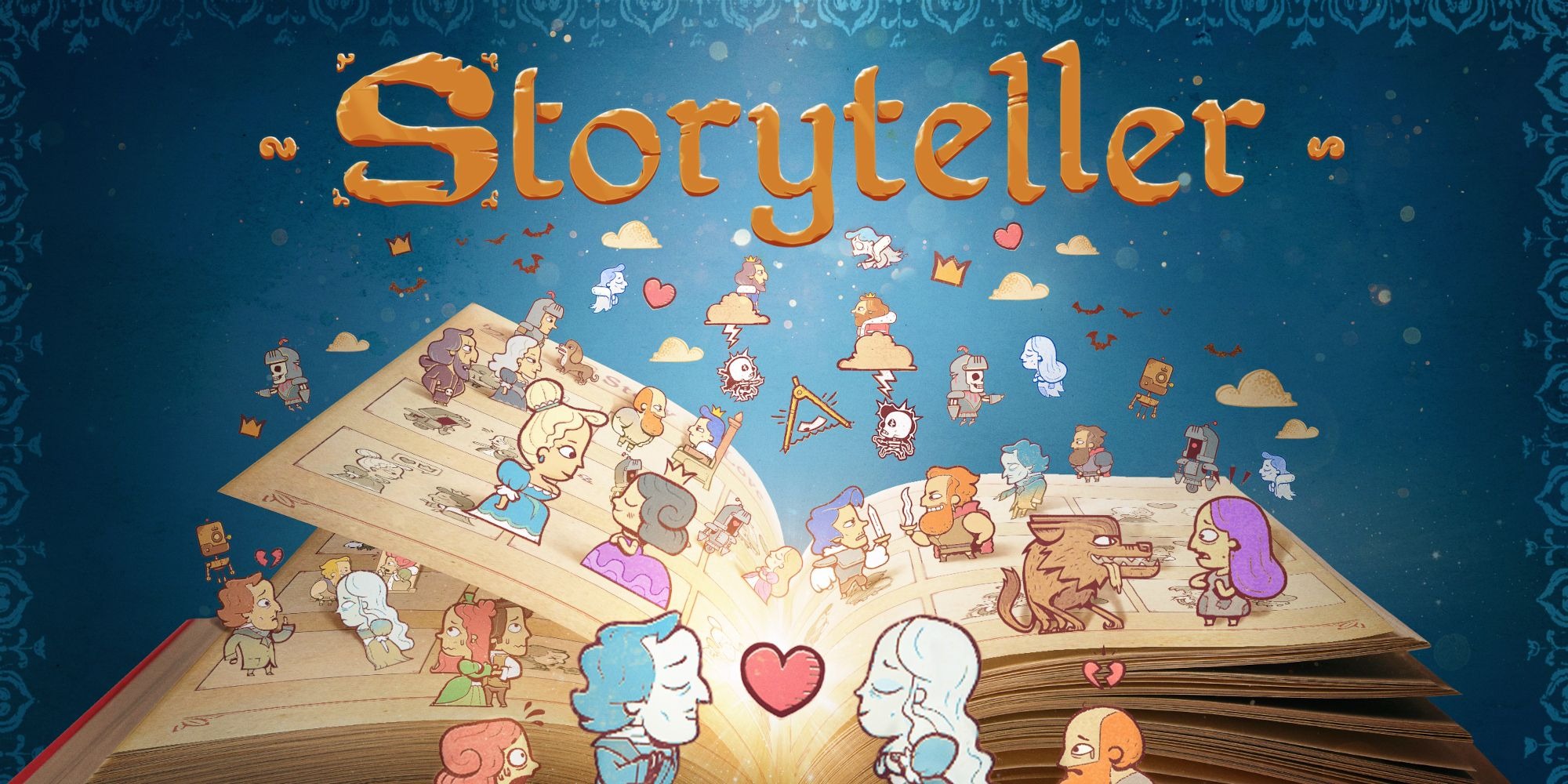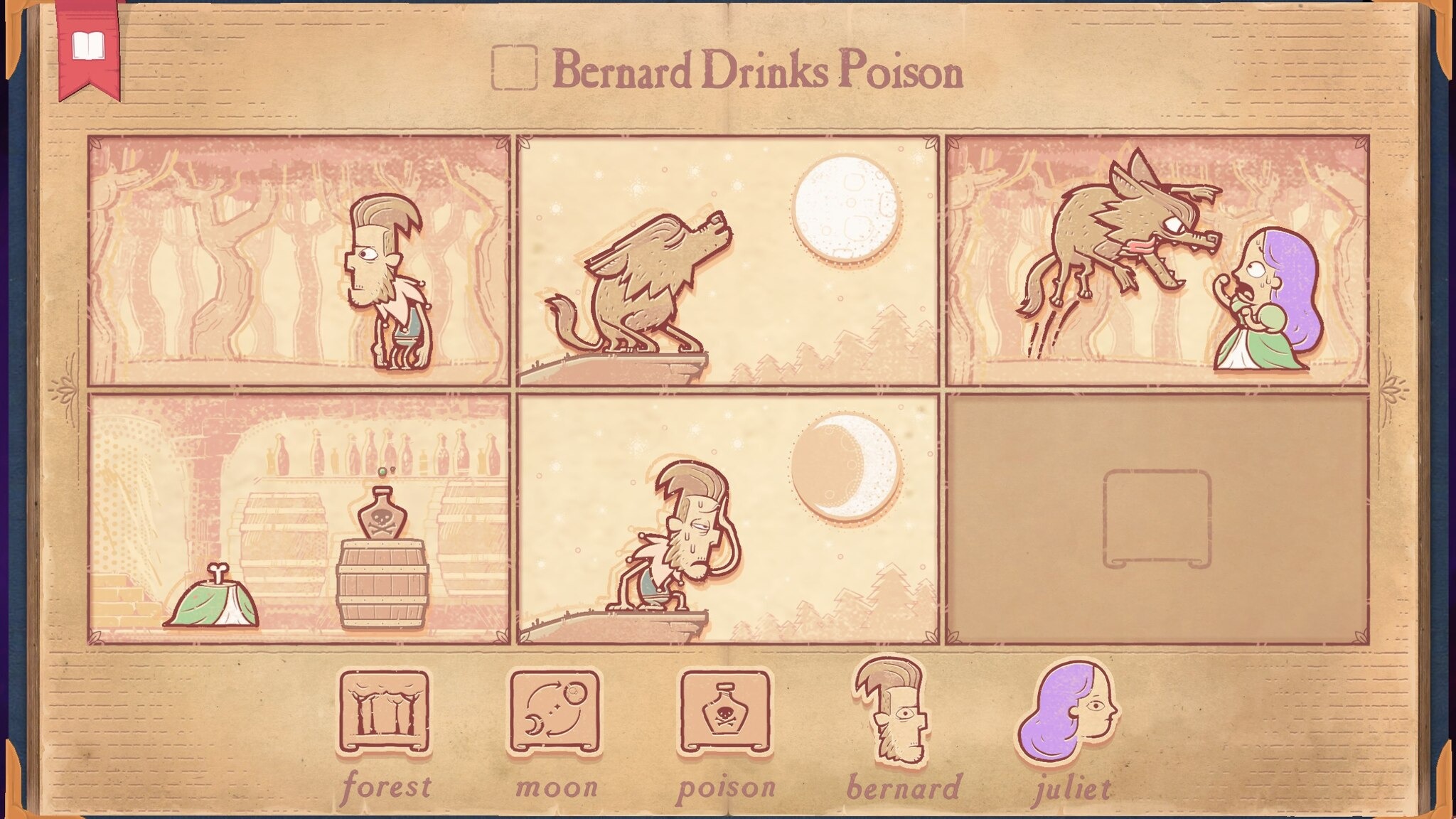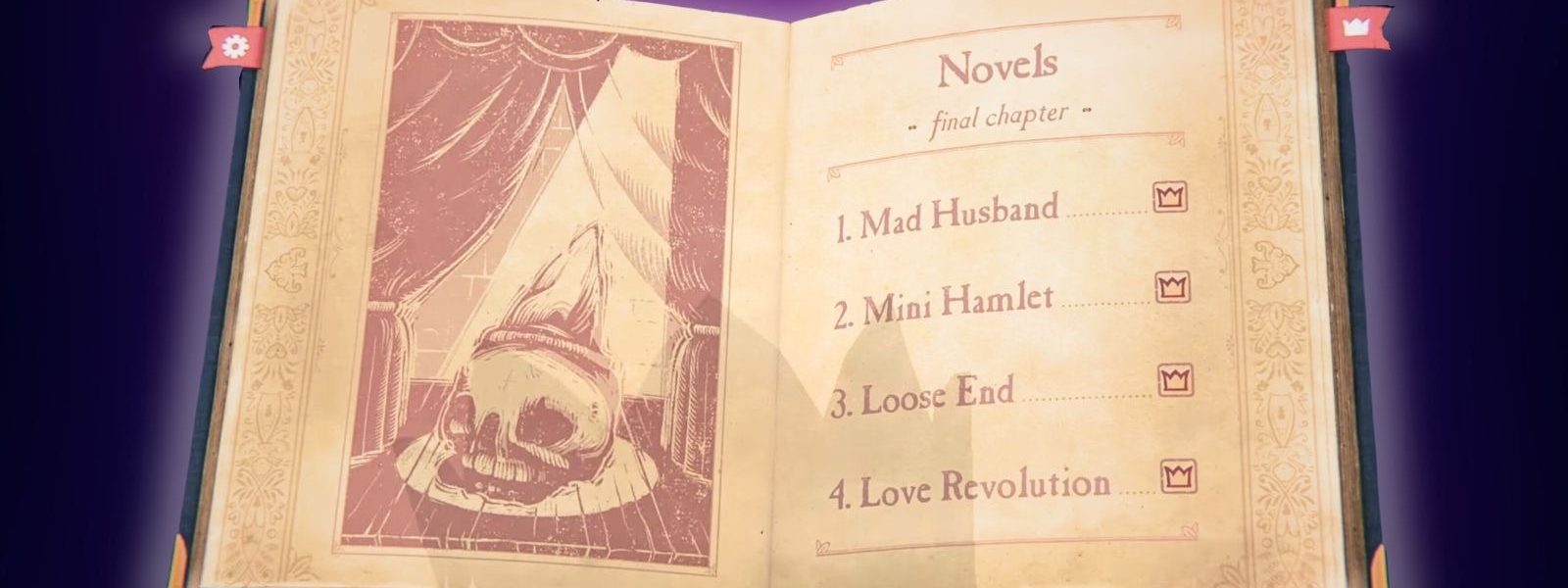For many of us, it was the fantastic stories of knights and dragons, love and loss and brave heroes who overcome all obstacles that made us fall in love with storytelling. However, as we get older and life becomes more complex, the types of stories we dream about also become more complex. Although the hero’s journey can be the basis for countless stories, these stories ultimately evolve into entirely new narratives, re-inventations, subversions and creations – those that change our ideas about what a story can be. It is this feeling of surprise and joy that Storyteller wants to capture. However, the imaginative puzzle game ultimately fails to bottle this Magic, not evolve significantly and offer a repetitive and overwhelming experience instead.

The premise of Storyteller is simple but seductive: you create stories that lead to a specific result by changing the order in which key events occur. To do this, fill in boxes that look like comic book panels and use a defined List of characters and parameters to do it. As you structure your story and adjust the variables if necessary to create the ending necessary to pass the level, the panels interact with each other, which gives a kind of interactive butterfly effect.
The challenge s start quite simply – let the prince and princess fall in love, help the knight finish the monster, etc.–then they quickly become a little more complex and require you to understand the temperament of a particular character and how this can affect his interactions with others. For example, the noble knight is careful of finish ing another character. The bloodthirsty Baron, on the other hand, will seize the opportunity. Likewise, the knight will always be vying for the queen’s affection, even if it is up to you to make her feel the same way about him.

Simplicity is at the heart of the storyteller – for superior or for worse. The game mechanics are easy to understand and create an airy experience, and the sober, cartoonish but minimalist illustrations are charming. Its simplicity also makes it an experience that goes well with portable consoles, as it is easy to solve a few puzzles and play on the go.
But while its premise is inspired, Storyteller suffers from feeling too simple. After almost 30 minutes during the hour-long duration of the game, it already seems empty and much too small – too small for creativity, too small to give a sense of challenge and too small to create an engaging experience. They quickly discover that there are very few variables and characters to interact with, and they are often repeated at all levels. This means that halfway through the game you will no longer have new puzzle pieces to think about or try to sneak in their place. And once you understand how these variables interact with each other, each level feels less like a Puzzle and more like a quick exercise in throwing things in their place to move ahead.
Sometimes the game seems downright boring, because you no longer solve puzzles, you just arrange very obvious sequences of events. An enigma, for example, asked me to connect several different characters by telling other characters: “I am your parents”. There was no challenge , just the Frustration of having to create several panels with the same judgement pronounced by different characters to establish this lineage and a certain affection for each other. Anyway, and with the exception of one level that took me a little longer than usual to understand, I was able to breathe absent-mindedly throughout the experience, which does not give the feeling of satisfaction that you expect from a puzzle game.
Even the handful of optional objectives spread over the levels does not make the game much more complex, as they often ask you to modify a few elements to get a slightly different result. These challenge s often involved things like completing a story in a certain number of frames or without using a specific character, but they are so simple that you can usually eliminate them when you solve the puzzle for the first time. Of course, it was pretty cute to see some of these differences, but it also made me wish the game would leave more room for creativity – a larger bank of variables to Play with and more options on how to achieve the final goal of a level.

Storyteller is frustrating in that you never feel like you’re really solving a secret or creating your own story. On the contrary, you are trying to piece together the exact story that the game expects of you. Although there are a few levels where you can get a satisfying ending in different ways, these seem rare. In the end, all these problems stifle the experience and reduce it to a creative concept that does not seem fulfilled. It also eliminates any replay ability that the game might have, because after playing a level there is no advantage in finding another solution and getting a new result.
As someone who loves fairy tales and has spent a few hours delving into creative puzzle games like Scribblenauts, the prospect of playing storytellers really appealed to me. Unfortunately, the experience was not intoxicating. Although its concept is interesting, the game ultimately seems limited – held back by simple puzzles and its lack of creative freedom.



